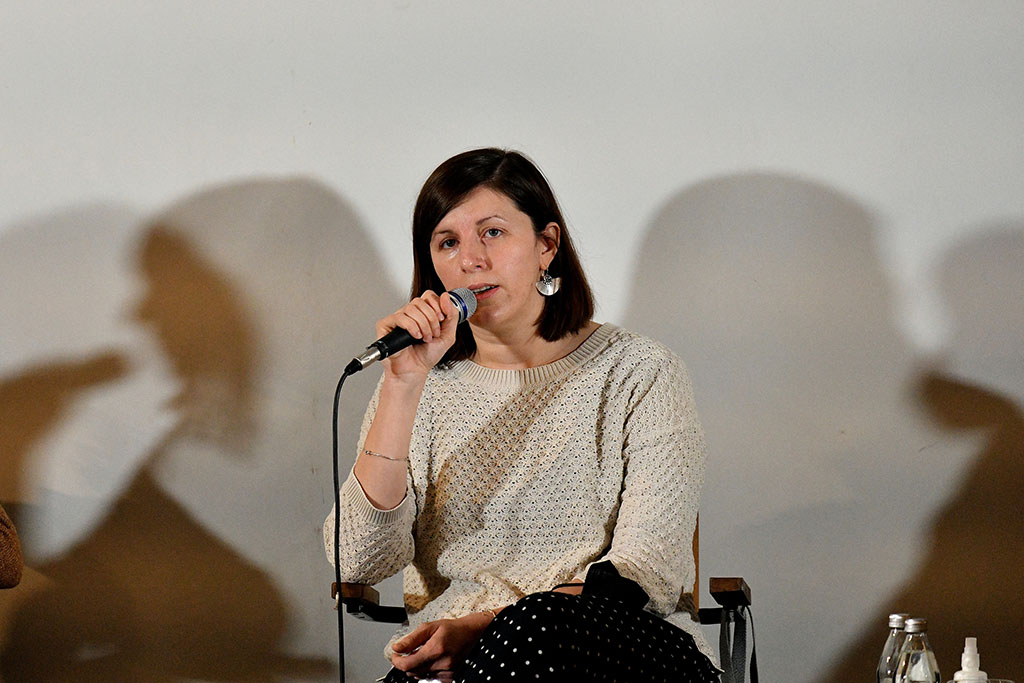The anti-gender movement—a threat to sexuality education
In recent years, the anti-gender movement has gained a foothold in North Macedonia and comprehensive sexuality education is under threat. To counteract this, the organisation HERA works to raise awareness of the importance of sexuality education.

The Health Education and Research Association (HERA) is one of Kvinna till Kvinna’s partner organisations in North Macedonia. They have been working on issues related to sexual and reproductive health and rights for more than 20 years. In recent years, they have seen the anti-gender movement grow in the country.
A threat to gender equality
The anti-gender movement appeared in the country at the end of 2020, at the same time as the government launched a new education reform of the primary school. The reform entailed that comprehensive sexuality education became part of the curricula as an optional subject and available to children between the ages of 13 and 14. For children to be able to attend those classes, however, they need to have a written consent from their parents.
The anti-gender movement now poses a threat to all achievements that has been made for gender equality so far.
“The anti-gender movement is strongly against the reform as they believe it will sexualise children. They have spread false information, even false translations of international documents, manipulated and acted provocatively to create more fear and panic,” says Andrijana Papic Mancheva, communications coordinator at HERA.
Important to be seen in the media
HERA tries to increase knowledge about the movement within their own organisation and with their partner organisations. They also try to talk about sexuality education in the media as much as possible and sees the lack of reliable sources for information as a major problem. To counteract this, they developed a website last year dedicated to sexuality education where they showcase what children are taught.
“I am sure that when a parent reads this, no one will say ‘no, I do not want my child to learn about this’,” says Andrijana.
Social media as the main platform
In North Macedonia, there are several Facebook initiatives started by the anti-gender movement, but only two are formally registered. One of the groups is called There must be schoolbooks and teaching and has over 80,000 members.
“The group is started by a woman who has children in primary school. During the pandemic, she started another initiative against digitalisation in schools and, at some point, they started lobbying against sexuality education and now it is one of their focus issues,” says Andrijana.
HERA suspects that there is a group of people who are ready to act when an opponent comments in the anti-gender movement’s Facebook groups or Facebook pages. When Andrijana commented on posts in the group, she often received comments back that she shouldn’t comment if she didn’t agree. She was also met with personal attacks with the aim of discrediting her as a person. This type of mobilisation is also something that Andrijana notices in HERA’s own channels.
“Through the posts they publish, I can see that they follow every step we take,” says Andrijana.
The political situation
If the political situation in the country was different, the anti-gender movement could grow even more.
“Last year we saw that a political party called Levica has grown. That means the left wing, but they do not pursue left-wing politics,” says Andrijana.
She says that the party uses the same rhetoric and narrative as the previous regime, which led to death threats against activists. In early 2022, HERA’s youth centre was attacked, and they believe that the attack is a result of the rhetoric used by the party.
“We have worked for sexuality education for ten years and we will not back down now due to the current situation. We will definitely monitor the anti-gender movement closely,” Andrijana concludes.
Kvinna till Kvinna has worked for women’s rights in North Macedonia since 1999. We support and cooperate with several partner organisations, including HERA, to promote sexual and reproductive health and rights, end gender-based violence and defend women’s rights.